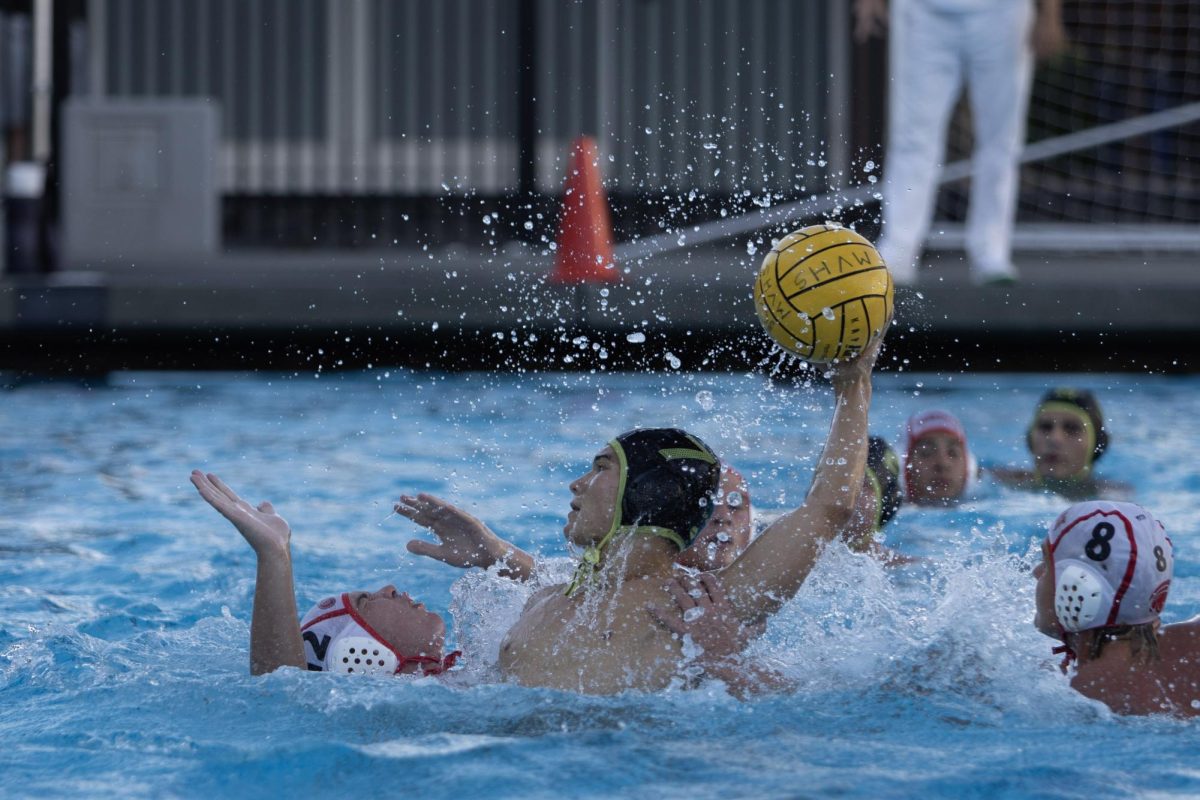Ten MVHS juniors scored a perfect score on the Oct. 11 PSAT. According to Assessment Coordinator Linda Vitz, this has been the most number of students she has seen who have earned a perfect score.
The news was released in an email from MVHS principal, Dr. Kip Glazer. The 10 juniors named were, Yash Chainani, Arthur Cheong, Asher Copeland, Carolyn Kao, Clara Lawrence, Gisella Lee, Hannah Rutherford, Michelle Walker, Atulya Weise, and Alexander Xu.
This was the first year that MVHS administered the PSAT online. As standardized testing moves towards a digital world, this change prompts both appreciation of benefits as well as potential downfalls from the administrative standpoint.
The PSAT serves as a practice test for the SAT, Vitz said, and is a recommended but optional exam for both sophomores and juniors.
MVHS does not offer the PSAT 10, which is uniquely for sophomores, but instead offers the PSAT/NMSQT which also serves as a qualifier for the National Merit Scholarship, Vitz said.
College Board, the creators and administrators of the PSAT/NMSQT, conducted a two-year pilot of the test in schools across the nation, and have announced that moving forward, the paper format will no longer be an option, and starting the beginning of January 2024, the SAT will be online, Vitz said. Members of the administration believe that there are both advantages and disadvantages to administering the test digitally for the future.
“This year it was a little rough because it was change and that makes people a little nervous when there’s change,” Vitz said.
One challenge proctors needed to account for was ensuring students had access to computers, either personal or school-issued, Vitz said. Additionally, in preparation to take the PSAT, every student had to create a College Board account which was the first time many students had to interact with the website, Vitz said.
However, benefits included a faster time for results to come in, at around three weeks, whereas they used to come in around eight to nine weeks later, Vitz said. After the exam occurred, Vitz said there was a sense of ease among the students despite an initial fear of the new format of the test. Furthermore, there was the additional benefit of the test being shortened from three hours to around two hours and 15 minutes, Vitz said.
Junior Atulya Weise, one of the students who earned a perfect score, said he didn’t do any previous preparation or studying for the PSAT. Weise also took the SAT, and said that both the PSAT and SAT were similar in terms of difficulty.
“[The room] was pretty chill, we walked in, it was all on our laptops,” Weise said. “There must have been like 20 of us in the room.”
Glazer said she believes that students at MVHS generally score above national average on standardized tests, but also believes that standardized test scores are not the ideal calibration for measuring the intellectual abilities of all students.
“Standardized testing is a measurement, not the [only] measurement,” Glazer said. “One’s intellectual abilities as well as academic skills can be measured by multiple instruments.”
Standardized testing needs to be relevant to the current student population and consistent each year, Glazer said. Glazer said she believes that the class of 2025 particularly has been well prepared academically throughout their high school career.
“Overall, I think we have an amazing student body that I am very proud to say can do all things really, really well,” Glazer said.
The ten students who earned a perfect score are all exceptional students, Vitz said, and some had even scored a 1520 as a sophomore. Vitz said that she believes the shift of the PSAT and SAT to online is for the better. Students tend to make small errors when they take the test on paper, such as miss-bubbles and students miss-labeling their names, birth dates, or school code, which can have consequences when organizing the papers, Vitz said.
The digital tests are simpler to organize, Vitz said. In terms of grades, after the work is uploaded, CollegeBoard is able to send the score directly to the students.
Another issue from the past from the paper test was reading students’ handwriting, Vitz said. She said she hopes that with the essays being typed out now, student’s scores will be higher.
“The paper ones would just drive me crazy…this is much better when the data is uploaded,” Vitz said. “All the schools that have done the pilot, that’s the way they want to go forward.”
However, on the other hand, Glazer has some concerns as well as questions about the new digital system. Her concerns have to do with the security of student data as students have to provide identifying information about themselves when taking exams run by College Board. Glazer added that sometimes privacy policies can change without always getting consent from the students to do so.
“’I’ll be curious, as well as concerned to see how we are protecting our student data,” Glazer said.
Glazer said she is also concerned with how the online format will be able to technically support other students, including students with special needs.
“I philosophically and morally object to any sort of new advancement of technology that perpetuates ableism because for me, as a learning scientist and lover of technology, I want technology to be used to encourage accessibility and inclusion,” Glazer said.
Glazer said that she thinks a large number of students will do better on paper. If testing companies like College Board had the priority of students’ performance in mind, then options need to be available for students that are supported by the structure.
Junior Carolyn Kao, who also was one of the 10 juniors earning a perfect score, said she also did no preparation for the PSAT. Kao said she prefers taking tests on paper rather than online.
“I prefer paper more, because it helps me focus better,” she said.
Kao said that the reading section of the online PSAT involved much shorter passages which were easier to keep focused on. She also said that the graphing website Desmos was available for all questions in the math section.
Both Kao and Weise said that the most difficult part of the PSAT was the pacing of answering the questions.
The students who earned a perfect score attended a breakfast celebration at MVHS on Jan. 19 to celebrate their accomplishment. With their scores, they are also eligible to apply for the National Merit Scholarship.
Vitz said that she believes that the shift of standardized testing online is moving in the right direction.
“There was the anxiousness and the nervousness, until they got their tests up and running,” Vitz said. “But then when [the students] were done, it was like, ‘Oh, I’d do it that way in a heartbeat.’”
Glazer said that she is very happy for the students who got a perfect score, as well as proud of the entire student population.
“I’m proud of them and the rest of our Spartans who may never ever get the perfect score on PSAT. But, I adore you for all that you are and all that you can give to this world,” Glazer said.


































